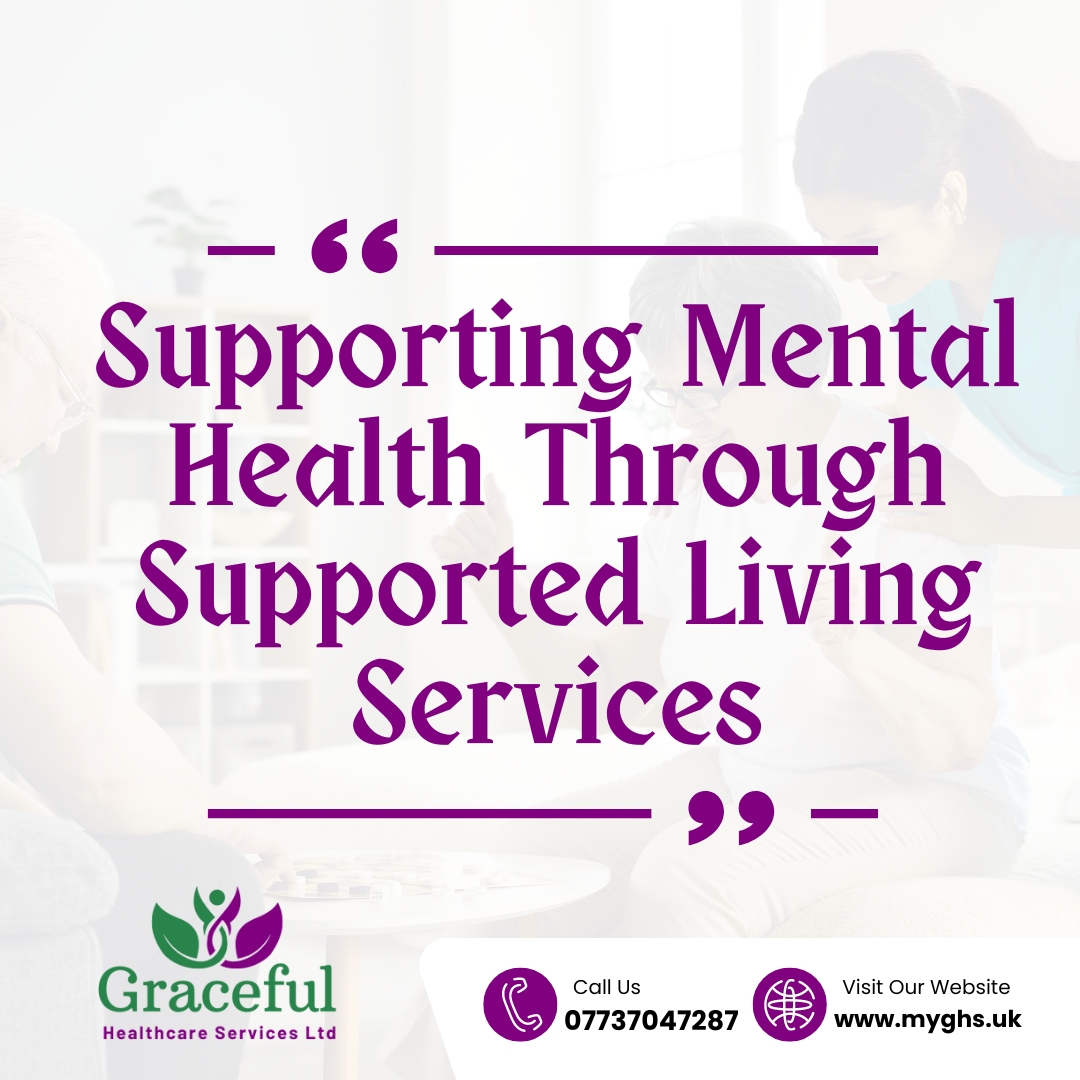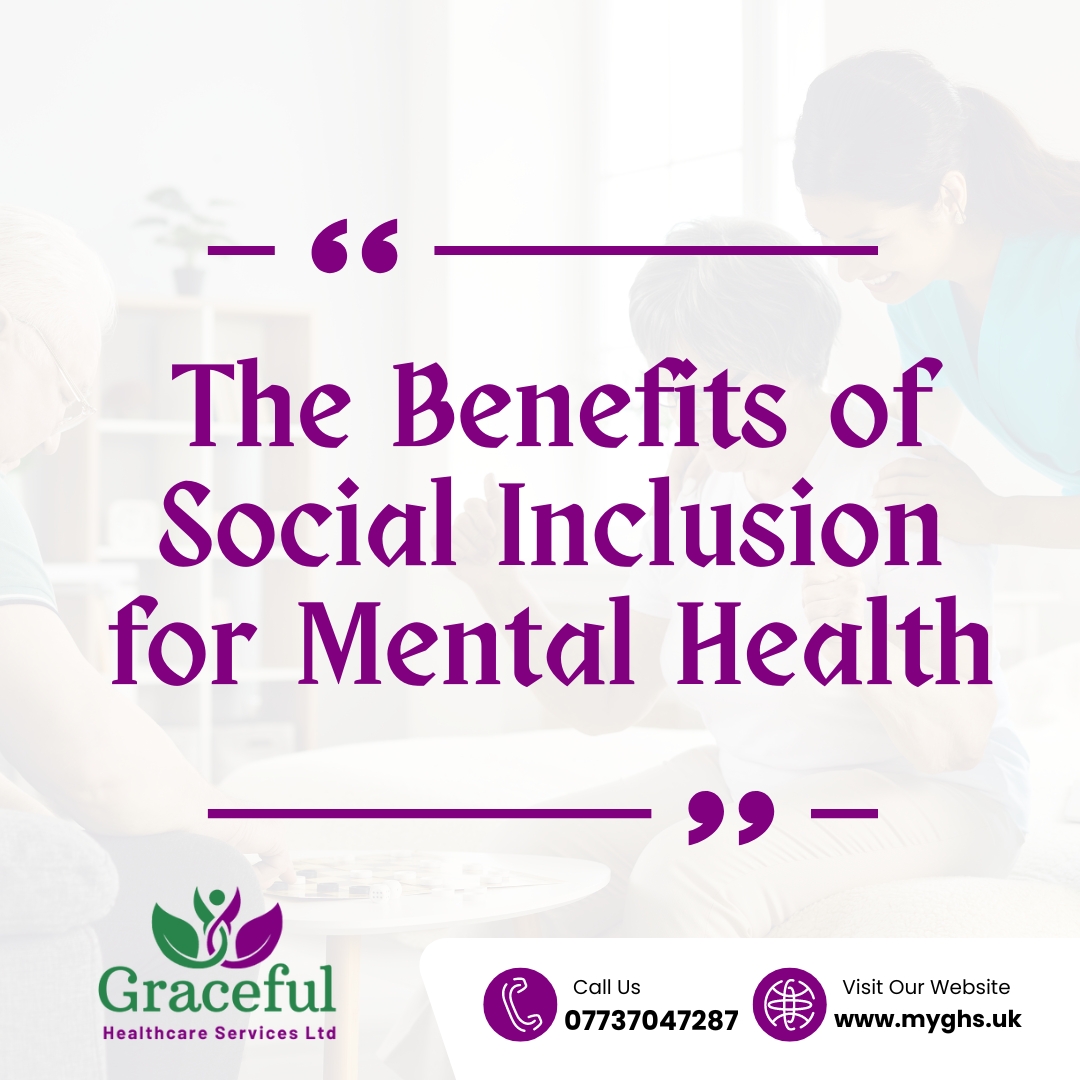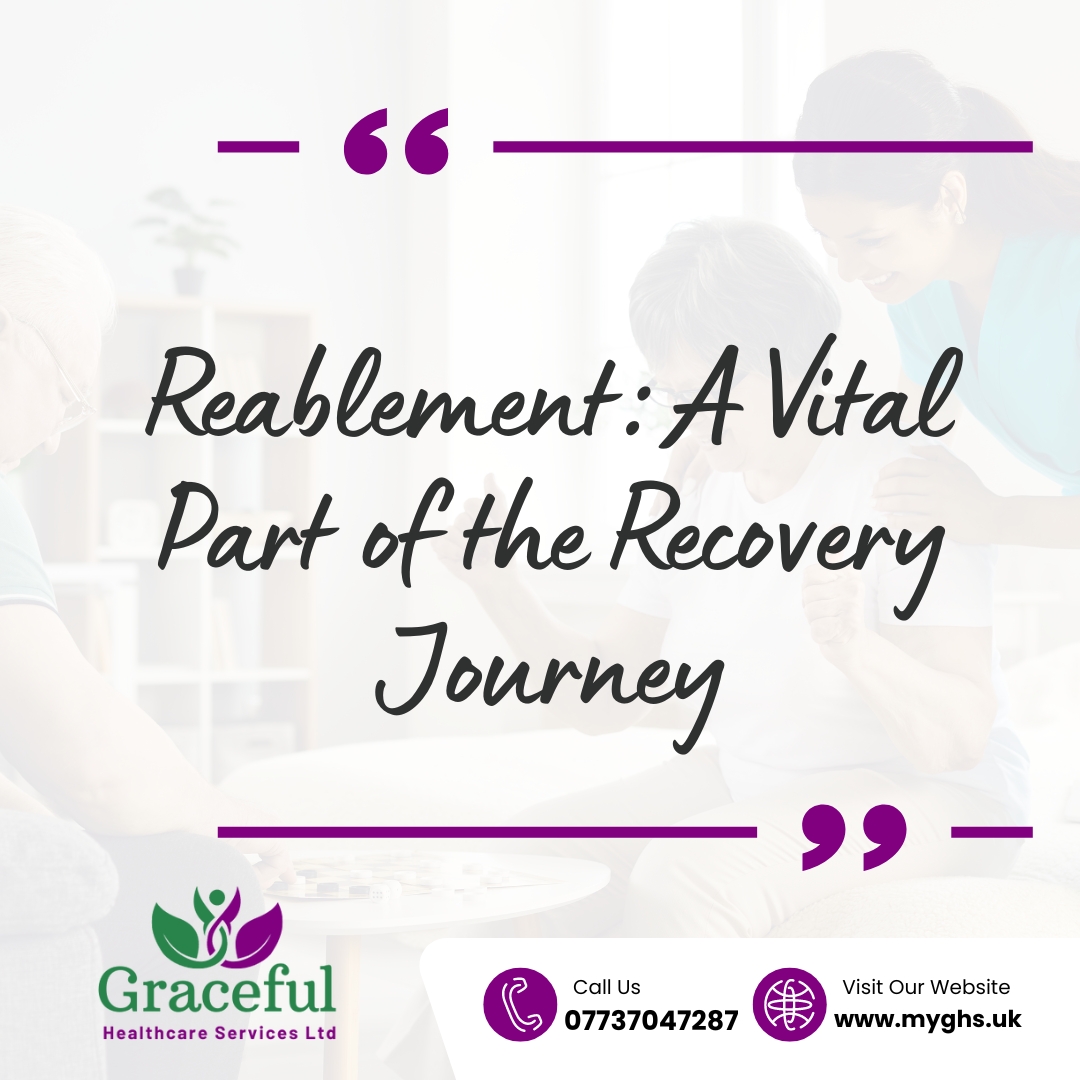Why Supported Living Services are Ideal for Adults with Disabilities

Table of Contents
In recent years, there has been a significant shift in how society approaches care and support for adults with disabilities. The emphasis has moved away from institutional care towards more person-centred, community-based solutions. Among these, supported living services have emerged as an ideal option for many adults with disabilities, offering a balance between independence and necessary support. This article explores why supported living services are becoming increasingly popular and how they benefit adults with disabilities in the UK.
Understanding Supported Living Services
Supported living services provide adults with disabilities the opportunity to live as independently as possible in their own homes while receiving the support they need. This model of care is fundamentally different from traditional residential care homes, as it places a strong emphasis on individual choice, control, and community integration.
Key features of supported living services include:
- Personalised support plans tailored to individual needs
- Separate housing and care arrangements
- Flexibility in the level and type of support provided
- Promotion of independence and life skills development
- Community integration and social inclusion
Providers like Graceful Healthcare Services offer comprehensive supported living services that exemplify these principles, ensuring that adults with disabilities receive the right balance of support and independence.
The Benefits of Supported Living for Adults with Disabilities

- Enhanced Independence
One of the primary advantages of supported living services is the opportunity for adults with disabilities to experience greater independence. Unlike traditional care homes, supported living arrangements allow individuals to:
- Make decisions about their daily routines
- Choose their living environment and decorate it to their taste
- Manage their own finances (with support if needed)
- Develop and practice life skills
This level of autonomy can significantly boost self-esteem and overall quality of life. Graceful Healthcare Services focuses on empowering individuals to take control of their lives, providing support that enhances rather than limits independence.
- Personalised Support
Supported living services offer highly personalised care plans that are tailored to each individual’s specific needs, preferences, and goals. This might include:
- Assistance with personal care
- Support with medication management
- Help with household tasks
- Guidance in accessing community services and activities
- Support in maintaining relationships and social networks
The flexibility of supported living allows for adjustments to be made as an individual’s needs change over time, ensuring that the support remains relevant and effective.
- Community Integration
Living in the community rather than in an institutional setting provides numerous opportunities for social inclusion and community participation. Supported living services often facilitate:
- Involvement in local community activities and events
- Access to education and employment opportunities
- Development of friendships and relationships outside of the care setting
- Participation in leisure activities and hobbies
This integration is crucial for reducing social isolation and promoting a sense of belonging. <a href=”https://myghs.uk/”>Graceful Healthcare Services</a> places a strong emphasis on supporting individuals to engage with their local communities, recognising the importance of social connections for overall wellbeing.
- Choice and Control
Supported living services are founded on the principle of giving adults with disabilities more choice and control over their lives. This includes:
- Choosing where to live and who to live with
- Deciding on daily routines and activities
- Selecting the type and level of support received
- Having a say in who provides their support
This level of autonomy is empowering and can lead to increased satisfaction with care arrangements.
- Skills Development
Supported living environments provide an ideal setting for adults with disabilities to develop and maintain important life skills. This might include:
- Cooking and meal planning
- Budgeting and money management
- Personal hygiene and self-care
- Using public transport
- Accessing community services
By focusing on skills development, supported living services help individuals to become more self-reliant and confident in their abilities.
- Improved Quality of Life
The combination of independence, personalised support, and community integration often leads to a significantly improved quality of life for adults with disabilities. Benefits may include:
- Increased self-esteem and confidence
- Better mental health outcomes
- Improved physical health through more active lifestyles
- Greater life satisfaction and sense of purpose
- Enhanced relationships and social networks
Graceful Healthcare Services prioritises these quality of life outcomes in their supported living arrangements, recognising that holistic wellbeing extends beyond just meeting basic care needs.
- Cost-Effective Care
While not the primary consideration, it’s worth noting that supported living services can often be more cost-effective than traditional residential care homes. This is particularly true when considering the long-term benefits of increased independence and reduced reliance on intensive support services.
Challenges and Considerations
While supported living services offer numerous benefits, it’s important to acknowledge that this model of care may not be suitable for everyone. Some challenges and considerations include:
- Level of Care Needs: Individuals with very high care needs may require more intensive support than typically provided in supported living arrangements.
- Safety Concerns: For some individuals, living independently may pose safety risks that need to be carefully managed.
- Isolation Risk: Without proper support, there’s a risk that some individuals might become isolated in their own homes.
- Transition Support: Moving from a more structured environment to supported living can be challenging and may require significant adjustment time.
- Funding and Eligibility: Navigating the funding landscape for supported living can be complex, and eligibility criteria may vary.
Providers like Graceful Healthcare Services work closely with individuals, families, and local authorities to address these challenges and ensure that supported living arrangements are appropriate and beneficial for each person.
The Role of Technology in Supported Living
Advancements in technology are playing an increasingly important role in enhancing supported living services. Some key technological innovations include:
- Smart Home Devices: Voice-activated assistants, automated lighting, and temperature control systems can increase independence and safety.
- Telecare Systems: Wearable alarms and sensors can alert carers to potential emergencies or changes in routine.
- Digital Care Planning: Electronic systems allow for real-time updates and better coordination between different support providers.
- Communication Apps: Video calling and messaging apps help individuals stay connected with family, friends, and support staff.
- Assistive Technologies: Specialised devices and software can support individuals with specific disabilities, such as communication aids or mobility assistance tools.
Graceful Healthcare Services integrates appropriate technologies into their supported living services, enhancing independence and safety while maintaining a personal touch in care delivery.
Case Study: Supported Living Success
To illustrate the positive impact of supported living services, consider a hypothetical case of Tom, a 32-year-old man with a learning disability:
Tom had previously lived in a residential care home but felt frustrated by the lack of independence and limited community involvement. With the support of Graceful Healthcare Services, Tom transitioned to a supported living arrangement. His personalised support plan included:
- Daily living skills training, focusing on cooking and household management
- Support to manage his finances and benefits
- Assistance in accessing local college courses in art and design
- Help to maintain relationships with family and develop new friendships
- Regular health check-ins and medication management
After six months in supported living, Tom reported feeling happier and more in control of his life. He had made new friends at college, was cooking simple meals for himself, and had even started volunteering at a local charity shop. While he still received daily support, Tom felt a great sense of achievement in his increasing independence.
The Future of Supported Living Services

As the demand for person-centred care continues to grow, supported living services are likely to evolve and expand. Some trends to watch include:
- Increased Use of Technology: Further integration of smart home technologies and digital health monitoring to enhance independence and safety.
- Co-Design of Services: Greater involvement of service users in designing and shaping supported living arrangements.
- Specialised Support: Development of supported living services tailored to specific disabilities or conditions, such as autism-specific housing.
- Community Hubs: Creation of community spaces within supported living developments to foster social connections and shared activities.
- Sustainable Living: Integration of eco-friendly practices and designs in supported living accommodations.
- Intergenerational Living: Exploring models that combine supported living for adults with disabilities with accommodation for other community members, promoting diversity and inclusion.
Graceful Healthcare Services remains at the forefront of these developments, continuously adapting their services to meet the evolving needs and preferences of adults with disabilities.
Choosing Supported Living Services
For adults with disabilities and their families considering supported living services, it’s important to carefully evaluate the options available. Key factors to consider include:
- Level of Support: Ensure the provider can offer the right level of support to meet individual needs.
- Location: Consider proximity to family, friends, and community amenities.
- Provider Reputation: Research the provider’s track record and read reviews or testimonials.
- Staff Training: Inquire about the qualifications and ongoing training of support staff.
- Person-Centred Approach: Look for providers that emphasise individualised care plans and promote choice and control.
- Community Integration: Evaluate how the provider supports community involvement and social activities.
- Flexibility: Consider how easily the support can be adjusted as needs change over time.
- Funding Options: Understand the costs involved and explore available funding sources, such as personal budgets or local authority support.
Graceful Healthcare Services offers comprehensive assessments and consultations to help individuals and families make informed decisions about supported living arrangements.
Wrapping it up
Supported living services represent a significant step forward in the care and support of adults with disabilities. By promoting independence, offering personalised support, and facilitating community integration, this model of care aligns closely with the principles of dignity, choice, and inclusion that are at the heart of modern social care.
The benefits of supported living are manifold, ranging from enhanced self-esteem and life skills development to improved quality of life and community participation. While challenges exist, the flexibility and person-centred nature of supported living services allow for creative solutions that can meet a wide range of needs and preferences.
As we look to the future, supported living services are likely to play an increasingly important role in empowering adults with disabilities to live fulfilling, independent lives. With ongoing advancements in technology and a growing emphasis on co-designed, personalised care, the potential for supported living to transform lives continues to expand.
For adults with disabilities and their families, supported living offers a compelling alternative to traditional care models. It provides an opportunity to balance the need for support with the desire for independence, creating a foundation for individuals to thrive and reach their full potential.
Providers like Graceful Healthcare Services are at the forefront of delivering high-quality supported living services, demonstrating the positive impact that this approach can have on the lives of adults with disabilities. As awareness and understanding of supported living grow, it is likely that more individuals will have the opportunity to benefit from this empowering and person-centred model of care.
Ultimately, supported living services embody the principle that disability should not be a barrier to leading an independent, fulfilling life. By providing the right balance of support and autonomy, these services are helping to create a more inclusive society where adults with disabilities can live, work, and participate as valued members of their communities.






Leave a Reply